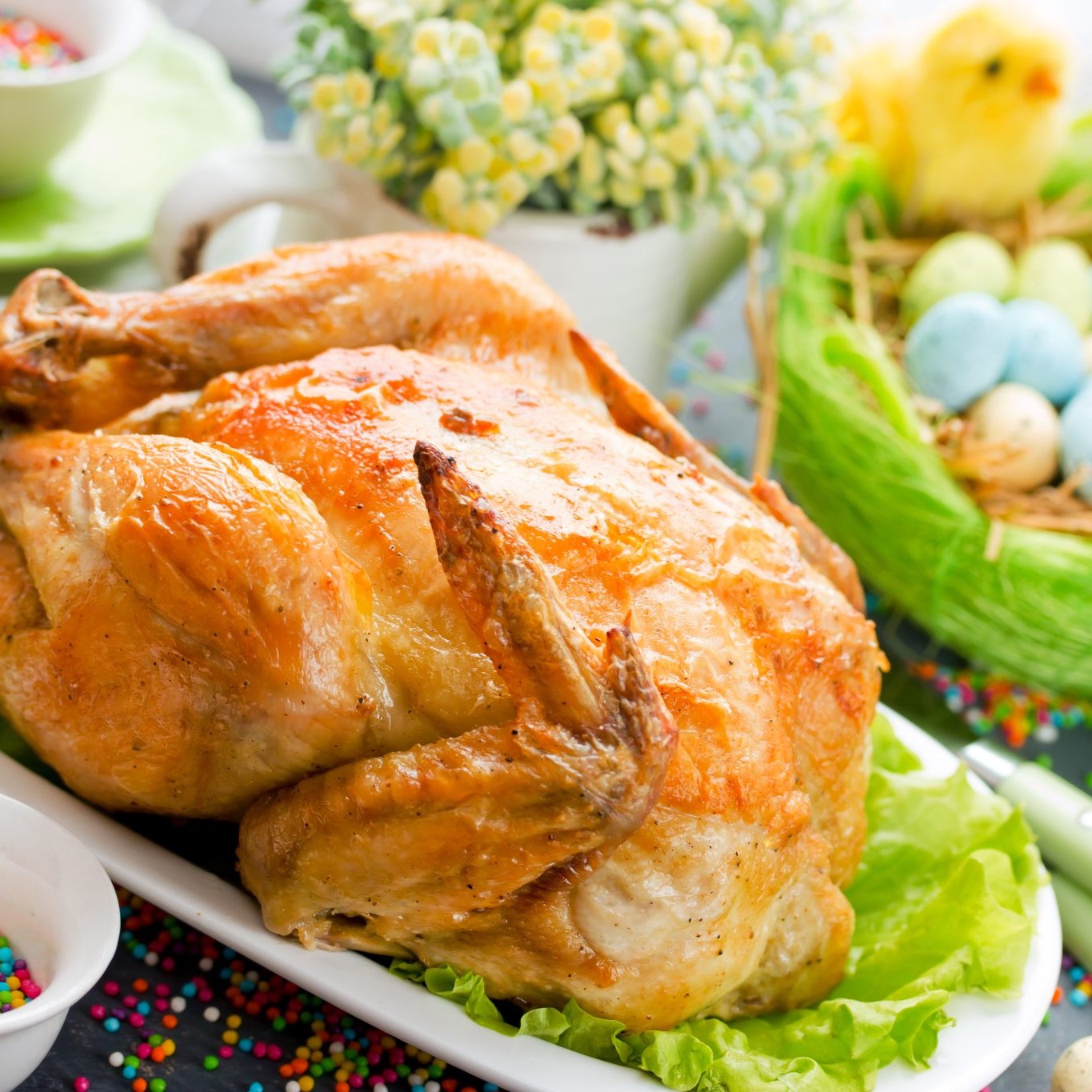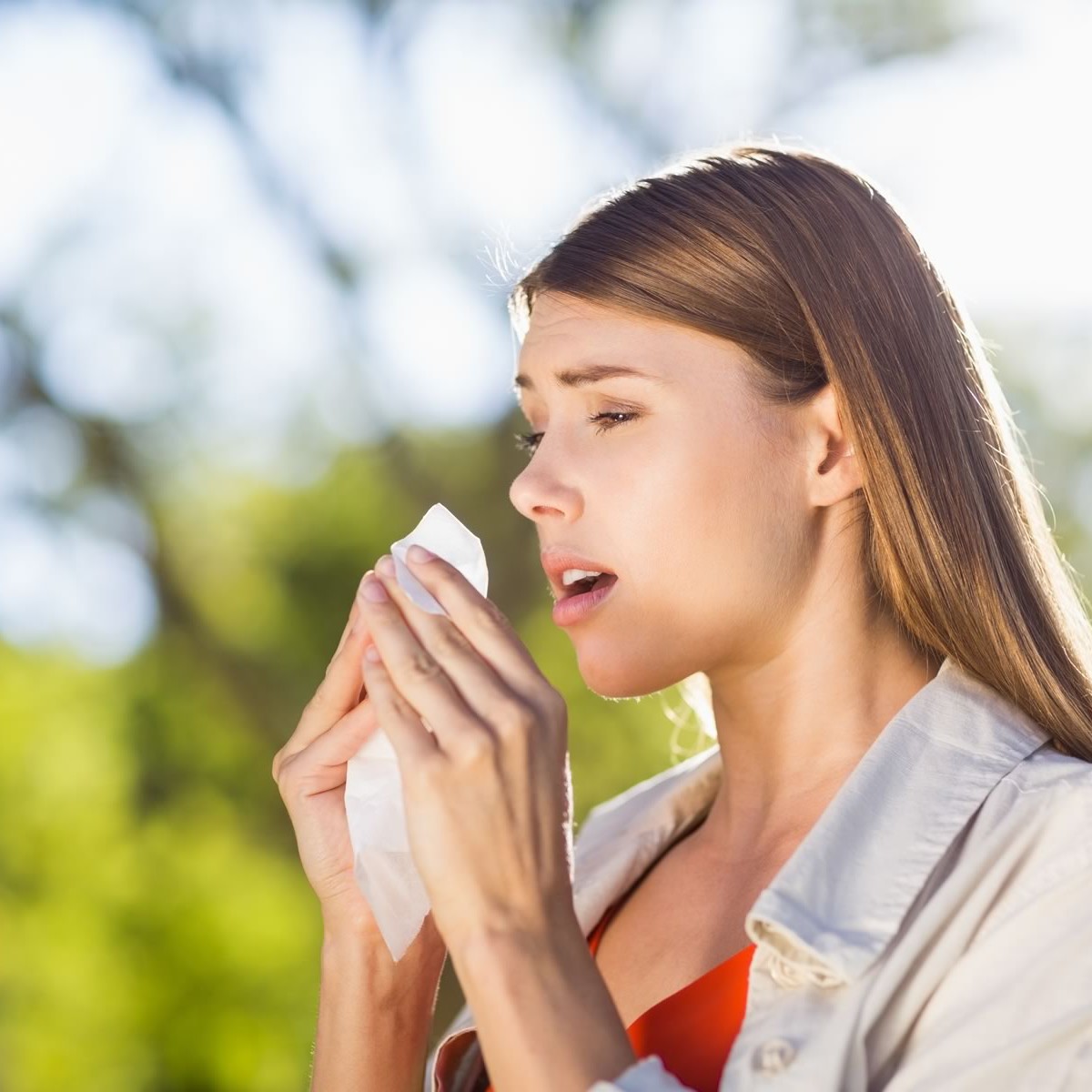The Easter and Passover holidays are here! Holidays mean family centered fun, festive meals, and usually sweet treats to enjoy. For allergy suffers, however, they can sometimes be challenging to navigate. Aside from the usual pollen and food allergies, brightly dyed eggs, household pets, and sweet baby chicks and bunnies can also wreak havoc on the nose and chest. Here are some tips to navigate the upcoming holidays and ensure that you and your family celebrate safe and happy.
Easter and Food Allergy Considerations
Traditional holiday meals are at the cornerstone of Easter and Passover. Plan the meals out in advance and be mindful of any guests that may have a food allergy. Be flexible and try to switch ingredients for allergy-friendly alternatives, eliminate a recipe from the menu altogether, or take care to prepare allergy-friendly dishes separately from the other meals. If you are not sure if guests have a food allergy, consider printing recipes out for each of the dishes and allow people to determine if it’s a safe food for them to indulge in. Also consider avoiding a buffet style offering, or separating allergen safe foods from allergen containing foods in two different areas or tables.
Sweet Treats
These spring holidays typically mean chocolate and sweet treats to younger members of the family, or those young at heart. Try to again consider those guest and family members that may have allergies to things like chocolate, so they are not left sitting on the sidelines. Allergy to chocolate itself, or the cacao bean, is incredibly rare, however more commonly the offenders are milk, peanuts, tree nuts, soy, and corn. A little research will provide an array of options of dairy free or peanut/tree nut free brands of treats. Always check labels to see if the offending food in contained in the ingredients list, or mentions it was produced in a facility that also processes other allergen containing foods putting your loved one at risk of cross contamination.
Keep in mind most chocolate does contain soy in the form of soy lecithin to keep it solid at room temperature, and white chocolate commonly contains corn in the form of corn syrup. If the treats offered are of the homemade variety, it can be even more challenging for a food allergy sufferer due to lack of label to research ingredients.
If you suffer from food allergies, a good rule to follow if “If you can’t read it, don’t eat it”. Plan to bring some of your own safe snack or goodies, unless you can make sure your host prepared foods allergen free, safely away from other allergen containing food, and on a separate and thoroughly cleaned surface. In lieu of store bought or homemade edible treats, consider offering nonfood items for younger guests such as books, sporting goods, stickers, novelty items, or toys.
Easter Egg Related Allergies
Although the majority of food allergens are most offensive if ingested, it is important to consider that some people do have reactions or develop irritations from contact exposure to egg or the dyes used to make them bold and bright. If colorful dyed egg hunts are part of your spring holiday tradition, there are alternative ways to include everyone on the fun. Instead of using traditional eggs and egg dye, consider eggs made of wood, ceramic, or plastic, and consider natural dye alternatives. Other options include making gelatin eggs, egg sugar cookies for decorating, or decorating marshmallows in place of eggs. Also, consider replacing the hard-boiled egg on the Passover Seder plate with a ceramic or plastic egg to keep guests anxiety free.
If the above-mentioned allergies are life threatening for you or a loved one, always make sure to carry a minimum of two epinephrine auto injectors if it is prescribed. Make sure the epinephrine autoinjector is carried in a way it can be accessed and administered within 60 seconds of a need arising. If you or a loved one does have life threatening allergies, it is always a good idea to check with your health insurance and ensure you know where to seek medical care should the need arise if celebrating the Spring holidays out of town.
Pollen Considerations
Food allergens typically are the easiest to keep front of mind during the holidays, however equally as difficult for allergy suffers and arguably more difficult to avoid are the tree pollens and mold spores blowing in the air. These unwanted guests can ruin any picnic or outdoor gathering with nasal, sinus, eye, and chest symptoms. If there is both indoor and outdoor venues at the celebration location, try to minimize the time spent outdoors. If you are hosting the celebration, try to offer an indoor haven if planning to spend time outdoors, as well as keep windows and doors closed at the indoor space. Also, minimize the exposure to outdoor allergens while traveling to the destination by keeping windows up in the car and instead using the air conditioning.
Celebration Times
It is a good habit to always check pollen counts for the area where you will be celebrating. If you are planning the celebration, try to have it start mid-day or later due to peak pollen times typically occurring in the first half of the day (specifically 5am 10am). Also, it would be beneficial to plan the event outside of heavily grassy areas or those densely populated with trees. This may help to decrease the concentration of allergens in the air. If the celebration will be entirely outdoors with no indoor refuge, it is a good idea to make sure you are on top of your allergy medication or immunotherapy regimen before going. It may be wise to pack a few changes of clothing as well as wet wipes for the ability to remove pollen from your immediate environment every few hours.
Once you return home from the festivities, plan to shower or bathe before prioritizing any other activities. It is especially important to bathe before crawling into bed, to remove any allergens that have adhered themselves to your skin or hair. This is especially important before allowing them to have access to your pillow or sheets and being in the immediate space and air you breath in all night.
Easter and Passover Gifts or Decor
Many people choose to show their appreciation to their host or show their love to their family by bringing beautiful spring flowers or plants to the celebration. Unfortunately, people can have severe symptoms such as sneezing, along with nose and eye itching and watering related to the pollen, or just the smell of particular flowers. Even an asthma attack can be triggered from them. According to the American College of Allergy, Asthma and Immunology, there are many flowers you can get at a florist that produce little pollen. Look for tulips, roses, begonia, columbine, crocus, daffodil, and geraniums if you want to be safe.
Pet Allergies
We cannot forget about the cherished furry family members that may be in attendance for the spring holiday celebration. There may also be the propensity to give the give of baby chicks or bunnies this time of year. Dander, saliva, sweat, and urine from adorable dogs, cats, and even bunnies can trigger an allergic response in some people. If possible, try to keep pets confirmed to only a certain area of the celebration so that those that wish to enjoy them can, while those that are unable can find refuge elsewhere.
Make sure to thoroughly wash your hands before returning to an animal free area of the celebration, before partaking in shared food items, or before touching your face, mouth, or eyes. Also, make sure the recipient of a new spring pet is not triggered by them. Although recent literature has shown us a true allergy to bird feathers is rare, there are substantial amounts of dust mites found in feathers that can trigger unwanted allergy symptoms.
Allergy Treatment Options
If you or a loved are unsure whether tree pollen, grass pollen, mold spores, dust mites, or animal dander are potential allergy triggers and the cause of the nasal congestion, runny nose, post nasal drip, sneezing, and itchy watery eyes you have been suffering with, seeing your provider for an allergy test may provide the clarity they are looking for! Some providers may have the ability to access food concerns as well. And if you are already aware of true allergy triggers, but the spring allergy medication and avoidance measures are just not cutting it, there is still time to see your provider and discuss starting allergen immunotherapy.
Amanda Hofmann, MPAS, PA-C, is a graduate of Duquesne University, in Pittsburgh, Pennsylvania. After spending eight years in clinical practice, she joined United Allergy Services as the vice president of clinical. Amanda is also the past president of the Association of PAs in Allergy, Asthma, and Immunology.
United Allergy Services is also on Facebook, LinkedIn, or Twitter. See other interesting and related articles on the UAS Blog.
You may also be interested in . . .
Easter and Passover Allergy Concerns
The Easter and Passover holidays are here! Holidays mean family centered fun, festive meals, and usually sweet treats to enjoy. For allergy suffers,…
The BIG 9: Food Allergens
For the last 17 years, the official list of major food allergens, or “The Big 8” has consisted of milk, egg, fish, shellfish, peanut, tree nut, wheat, and…
Prepare for Spring Allergy Season
Spring is fast approaching, and if you are a seasonal allergy sufferer, you likely associate this time of year with chronic sneezing, sniffling, and…



